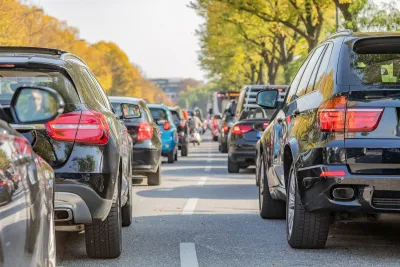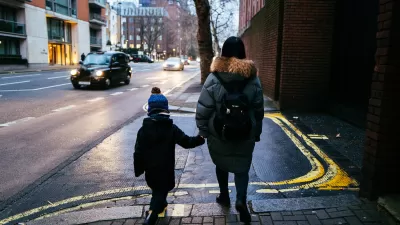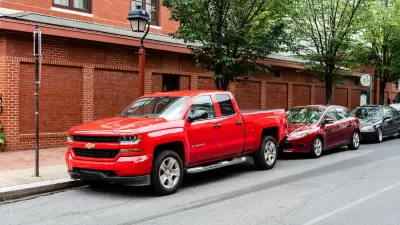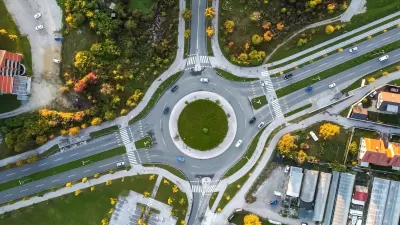New research links large SUVs to lower traffic throughput.

New research links large SUVs to increased traffic congestion, reports David Zipper in Bloomberg CityLab. This is because larger vehicles reduce the capacity of driving lanes, according to researchers from the University of Sydney and the University of Hong Kong. “Their findings suggest yet another way in which ‘car bloat’ exacerbates problems that affect everyone, regardless of how they travel,” Zipper writes.
While road safety advocates have been sounding the alarm about large trucks and SUVs for years, the new study adds a new dimension to its assessment of the impacts of larger cars: “They examined whether expanding vehicle size is limiting ‘throughput,’ the maximum number of vehicles that can move through a lane in an hour.” The study found that in Minneapolis and St. Paul, more SUVs reduced the capacity of freeway lanes by almost 10 percent between 1995 and 2019.
Car bloat has other negative externalities that land on society rather than owners, including higher greenhouse gas emissions, faster deterioration of road pavement, reduced on-street parking capacity, and increased tire pollution.
According to the article, “The share of new car sales comprised by SUVs and pickups has leapt from less than one in four during the 1970s to roughly four in five today.” And while larger cars may offer perceived safety benefits to their passengers, a study from The Economist found that the largest 1 percent of vehicles killed 12 people in collisions for every one life saved.
FULL STORY: How SUVs Are Making Traffic Worse

Maui's Vacation Rental Debate Turns Ugly
Verbal attacks, misinformation campaigns and fistfights plague a high-stakes debate to convert thousands of vacation rentals into long-term housing.

Planetizen Federal Action Tracker
A weekly monitor of how Trump’s orders and actions are impacting planners and planning in America.

Chicago’s Ghost Rails
Just beneath the surface of the modern city lie the remnants of its expansive early 20th-century streetcar system.

Bend, Oregon Zoning Reforms Prioritize Small-Scale Housing
The city altered its zoning code to allow multi-family housing and eliminated parking mandates citywide.

Amtrak Cutting Jobs, Funding to High-Speed Rail
The agency plans to cut 10 percent of its workforce and has confirmed it will not fund new high-speed rail projects.

LA Denies Basic Services to Unhoused Residents
The city has repeatedly failed to respond to requests for trash pickup at encampment sites, and eliminated a program that provided mobile showers and toilets.
Urban Design for Planners 1: Software Tools
This six-course series explores essential urban design concepts using open source software and equips planners with the tools they need to participate fully in the urban design process.
Planning for Universal Design
Learn the tools for implementing Universal Design in planning regulations.
planning NEXT
Appalachian Highlands Housing Partners
Mpact (founded as Rail~Volution)
City of Camden Redevelopment Agency
City of Astoria
City of Portland
City of Laramie





























